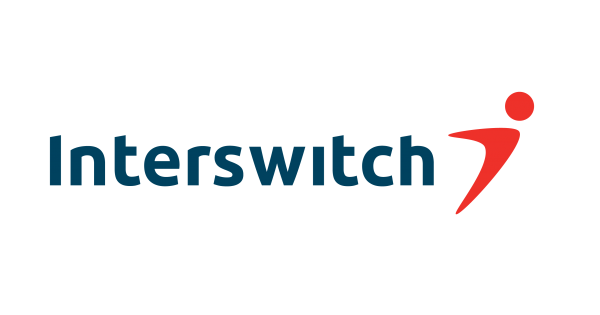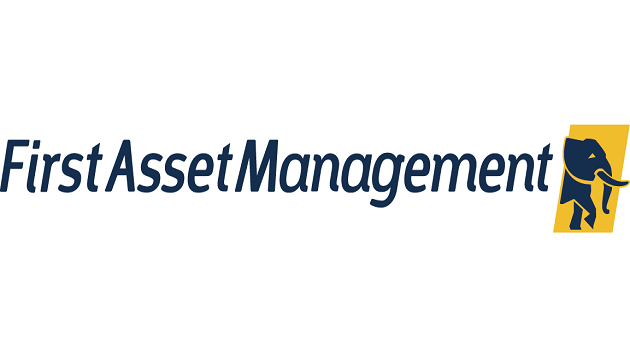E-Financial
Interswitch Unveils Whitepaper on Blockchain Technology

Africa’s leading integrated digital payment and e-commerce company, Interswitch Group, has unveiled its whitepaper on blockchain technology titled “Blockchain Technology: The Future of Africa’s Digital Economy” to help drive the growth of African businesses.

The white paper document contains details on how businesses can leverage blockchain technology to transform their businesses and the prospects it portends for the future of Africa’s digital economy.
The blockchain technology is a digital ledger that stores transactions. Essentially, it is a digital system for recording transactions in multiple places at the same time thereby making it impossible to falsify the data stored on it.
Akeem Lawal, Managing Director, Transaction Switching and Payment Processing at Interswitch commented, “The whitepaper document was inspired by the need to demystify the ambiguity around blockchain technology for African businesses thereby driving digitization and socio-economic growth across African markets.
We are passionate about empowering Africans and advancing the African payment landscape, and we are consistently identifying opportunities and exploring innovative ways to enable businesses transform and scale.”
He revealed that the whitepaper document encapsulates the benefits of blockchain technology and how it will help strengthen businesses because of its efficiency, better security in keeping records and safety.
He further said: “While the blockchain technology is a relatively new phenomenon in Nigeria and Africa, we are particularly excited about our partnership with Interstellar with whom we are developing a native blockchain infrastructure that is tailored to suit the African market. This initiative will deepen digital payment, lower the cost of local and cross border payment as well as champion the cause for localization of emerging technology”.
He urged everyone to read the whitepaper document because it addresses existing challenges in the Fintech sector and simplifies the use of blockchain technology in unravelling these challenges.
The blockchain technology is evolving globally and businesses are integrating the Blockchain technology into their business infrastructure.
E-Financial
NIBSS, Others Flag 13,417 Nigerian Fraudsters on Person of Interest Portal

At least 13,417 individuals linked to fraudulent activities in Nigeria’s financial system have been captured on the Person of Interest Portal jointly developed by the Nigeria Inter Bank Settlement System (NIBSS) in collaboration with the Central Bank of Nigeria (CBN), security agencies and other stakeholders.

Premier Oiwoh, managing director of NIBSS, disclosed this while speaking on ongoing efforts to curb fraud in the payments ecosystem, noting that the portal which contains names and photographs of suspects has been actively used by law enforcement agencies since it began capturing data from 2019.
Oiwoh, while noting that fraud management remains a core responsibility of NIBSS, noted that the number of reported fraud cases has declined over the past five years, the value of losses remains a key concern for regulators and operators.
According to him, actual fraud losses stood at about N17.67 billion in 2023 before rising sharply to N52.26 billion in 2024, mainly due to a single incident involving N31.1 billion by one entity. He noted, however, that losses dropped significantly in 2025, reflecting tighter controls and improved collaboration across the industry.
He explained that Lagos continues to account for the highest concentration of fraud cases due to its position as the country’s commercial hub, while Abuja has also recorded a notable rise, with other states still featuring in reported incidents.
By transaction channel, Oiwoh said fraud is most prevalent in e-commerce and internet banking, followed by POS, mobile and web platforms.
He identified social engineering as the most common technique used by fraudsters, warning that insider abuse now poses the greatest threat to the system.
“Insider involvement is high, and recent investigations have confirmed this. Many of the fraud cases we are seeing today involve insiders, including former bankers,” he stated, noting that coordinated industry action has yielded results, and that joint efforts last year alone prevented losses of about N20 billion that could have been lost to fraud.
He raised concern over non-reporting of fraud incidents revealing that fraud reporting declined by about 34 per cent in the last quarter of 2025.
He warned that failure to report allows perpetrators to move freely between institutions undetected.
“In several cases investigated last year, individuals involved in fraud simply moved to other institutions because incidents were not reported. Non-reporting is unacceptable,” he said.
He said NIBSS, working with the CBN, the Nigerian Financial Intelligence Unit, and security agencies, has integrated centralised data systems, including industry watch lists, politically exposed persons databases, and customer account repositories, into the Person of Interest Portal to strengthen monitoring, identity management, and fraud prevention.
Credit… Leadership
E-Financial
CBN Prepares Fresh Debit Card Rules to Improve ATM Services

Central Bank of Nigeria (CBN) is to introduce new rules to improve how debit cards and Automated Teller Machines (ATMs) work in Nigeria, according to Olayemi Cardoso, governor of the apex bank.

Cardoso, made this known through Fatai Karim, his special adviser, at an event held over the weekend.
According to him, the new rules are meant to solve ongoing problems with cash withdrawals and to restore public trust in electronic payment systems.
The CBN explained that banks will now be required to issue debit cards based on the number of ATMs they have installed. This means a bank should not issue too many cards if it does not have enough ATMs to support them.
The policy is expected to reduce long queues at ATMs, frequent machine breakdowns, and uneven access to cash across the country.
The CBN noted that repeated ATM failures and cash shortages have made many Nigerians lose confidence in digital banking, even though electronic transactions are increasing.
The Governor said the new policy will soon be introduced to clean up the system and ensure banks properly balance the number of debit cards they issue with the ATMs they operate.
E-Financial
First Asset Management Receives Upgraded Ratings from Agusto &Co and DataPro

First Asset Management, a subsidiary of FirstHoldCo Plc has recorded a significant milestone as its rating was upgraded to ‘AA’ from ‘AA-’ by DataPro, reflecting the firm’s strong fundamentals and sustained resilience in Nigeria’s Asset management landscape.

The rating upgrade, issued in DataPro’s latest rating report, underscores First Asset Management’s diversified income base, high-quality investment portfolio, and experienced team, all of which continue to support the firm’s long-term stability, sound governance framework, and consistent performance.
The improved rating highlights the organisation’s ability to maintain strong operational fundamentals while effectively navigating market cycles. It further reflects First Asset Management’s disciplined investment philosophy, prudent risk management practices, and commitment to delivering value-driven solutions to its clients.
Speaking on the upgrade, Ike Onyia, Managing Director/CEO of First Asset Management, stated, “We are pleased with DataPro’s decision to upgrade our rating to ‘AA’. This recognition affirms the depth of our investment expertise, and the consistency of our governance and risk management processes. We remain focused on sustaining strong performance while delivering reliable investment outcomes for our clients.”
In a related development, Agusto & Co. has upgraded the rating of the First Asset Money Market Fund to ‘Aa-(f)’ from ‘A+(f)’, further reinforcing the strength of First Asset Management’s product offering.
According to Agusto & Co., the upgraded rating reflects the fund’s consistent low exposure to interest rates and liquidity risks, as well as the fund manager’s commendable professionalism and prudent investment approach. The rating affirms First Asset Money Market Fund’s position as a formidable investment vehicle for capital preservation and steady income generation.
First Asset Management continues to maintain a strong position within Nigeria’s asset management industry, supported by its disciplined investment framework, experienced investment professionals, and a growing suite of products designed to meet the evolving needs of retail and institutional investors.
DataPro and Agusto & Co. are both recognized leaders in ratings and investment research in Nigeria, with extensive experience providing independent assessments across multiple sectors. Their ratings are widely accepted as benchmarks for evaluating financial strength, risk management, and business sustainability.
First Asset Management is a leading Nigerian investment manager within the FirstHoldCo Group. The firm has evolved into a full service investment platform, offering integrated wealth and portfolio solutions across the Group.
First Asset Management manages diversified strategies spanning fixed income, equities, alternatives, passive and quantitative products, in multiple currencies for a variety of individual, intermediary and institutional clients.

 General News3 days ago
General News3 days agoPalmPay User Shares Experience on Fintech Apps to Trust in Nigeria

 General News3 days ago
General News3 days agoNigerians Target Self-Improvement, Business Startups in 2026 Google Data

 News3 days ago
News3 days agoStakeholders Demand Stronger Governance and Infrastructure to Drive Tech Adoption @ Lagos AI Summit

 News3 days ago
News3 days ago35 Million Nigerians Face Acute Hunger in 2026, UN Warns

 General News3 days ago
General News3 days agoHow Inside Jobs and Policy Shocks Trigger Nigeria’s Rising Loan Crisis

 E-Financial17 hours ago
E-Financial17 hours agoFirst Asset Management Receives Upgraded Ratings from Agusto &Co and DataPro

 News17 hours ago
News17 hours agoAnambra Cuts Monday Pay to Kill Sit-at-Home

 General News17 hours ago
General News17 hours agoNigeria Treats Religious Violence as Attack on State – NSA Ribadu























